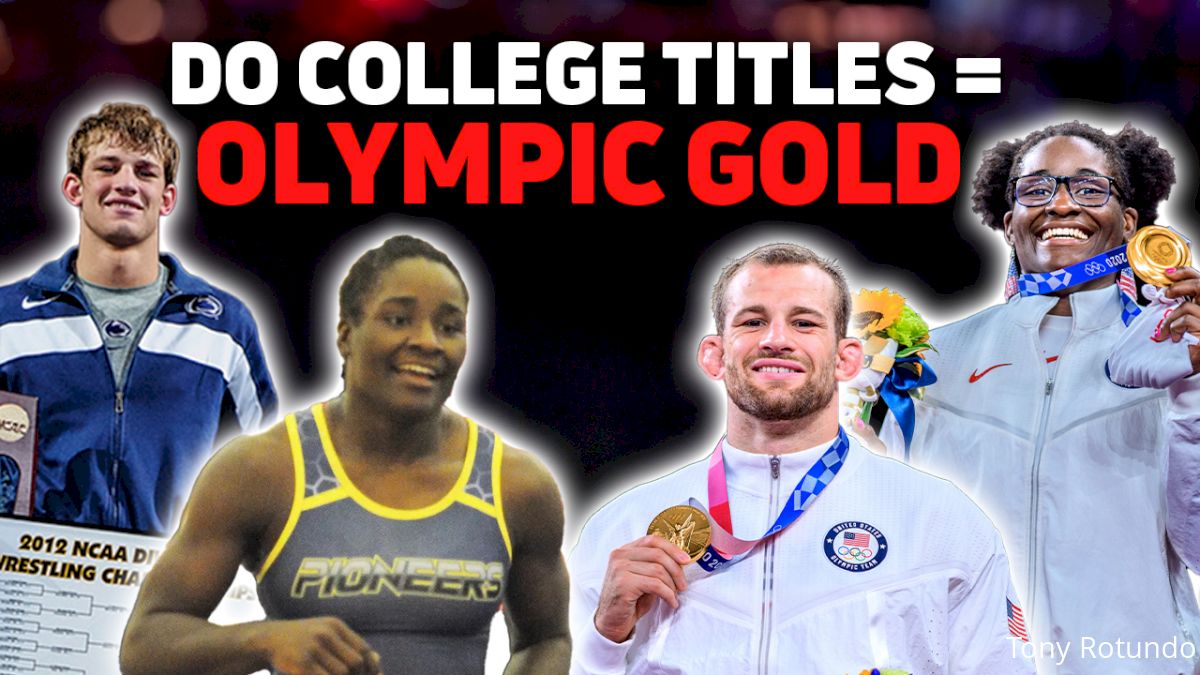College Success Still Best Predictor For Winning Olympics
College Success Still Best Predictor For Winning Olympics
Skip college if you want, but history says winning an Olympic gold medal will be difficult if you do.

So you want to win an Olympic gold medal in wrestling? High-level college success predicts if that will happen.
Since the 1932 Olympics, 39 of 40 gold medalists have wrestled in college and placed at their respective national championships. Henry Cejudo is the exception.
Winning the NCAA Division I Championships or reaching the finals is a must on the men’s freestyle side — or close to it.
Of the 35 men’s freestyle Olympic champions, 27 won NCAA titles, and five reached the finals.
John Peterson (82 kg), Bobby Weaver (48 kg), and Henry Cejudo (55 kg) are outliers. Peterson finished fifth at the 1971 NAIA championships, Weaver finished third at 118 pounds during the 1982 NCAAs but competed internationally at 105.5 pounds, and Cejudo didn’t attend college.
Takeaways: Reach the NCAA finals if you want to win an Olympic gold medal at a weight higher than 55 kg or, if you're John Peterson, train consistently with NCAA and Olympic champions from Iowa State (Dan Gable and brother Ben).
University of Illinois star Allie Morrison wrestled won the 1928 Olympics but didn’t attend the inaugural 1928 NCAA Championships in Ames, Iowa.
The United States has two Olympic champions in women’s freestyle, and both (Helen Maroulis and Tamyra Mensah-Stock) won WCWA titles — the recognized women’s college championship at the time.
There’s a correlation between college success and Greco-Roman, too. All three gold medalists finished in the top five at the NCAA D1 tournament.
Check out the charts below for a breakdown of our current Olympic team and U.S. gold medal results since 1932.